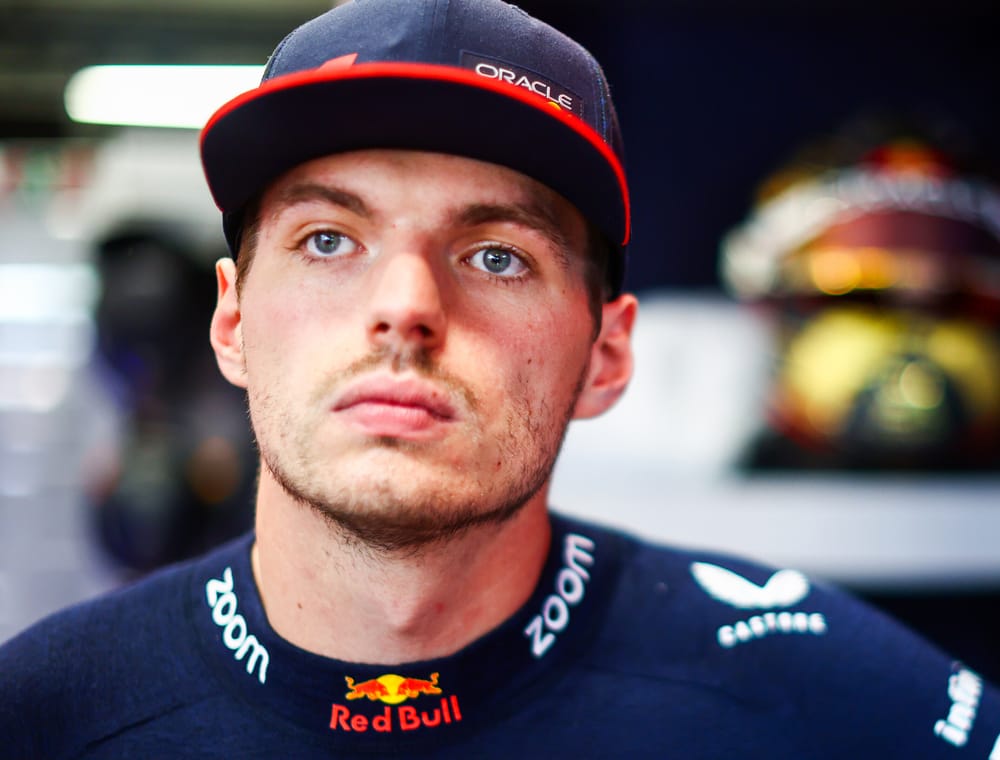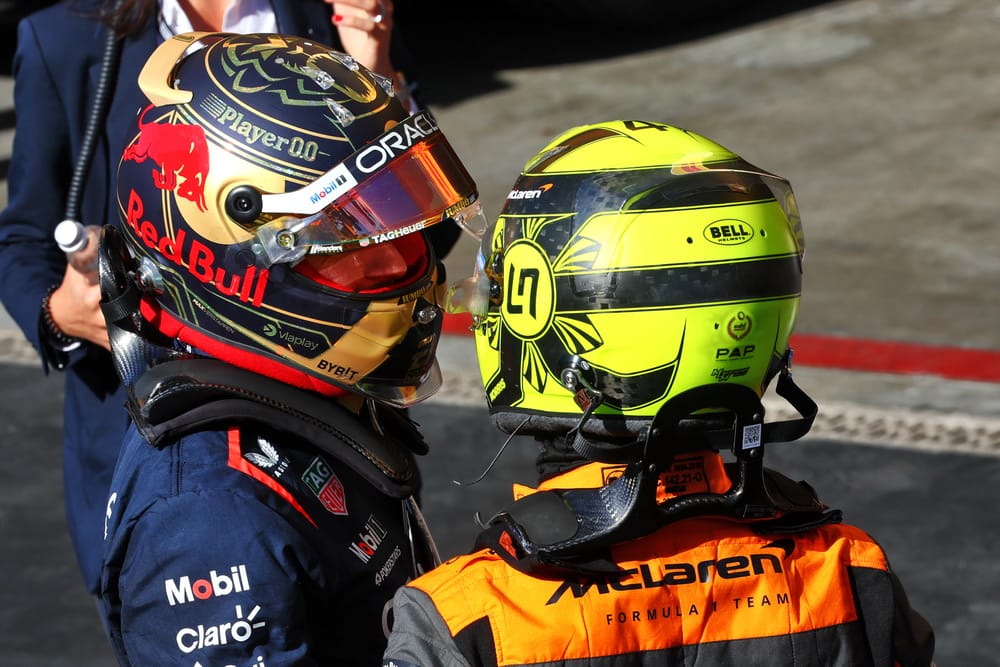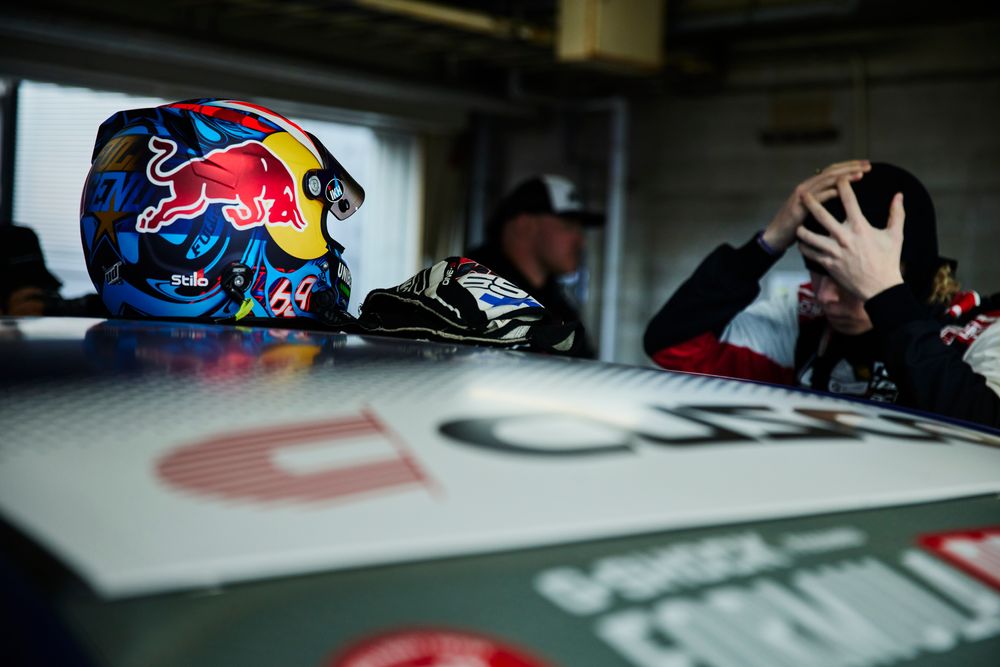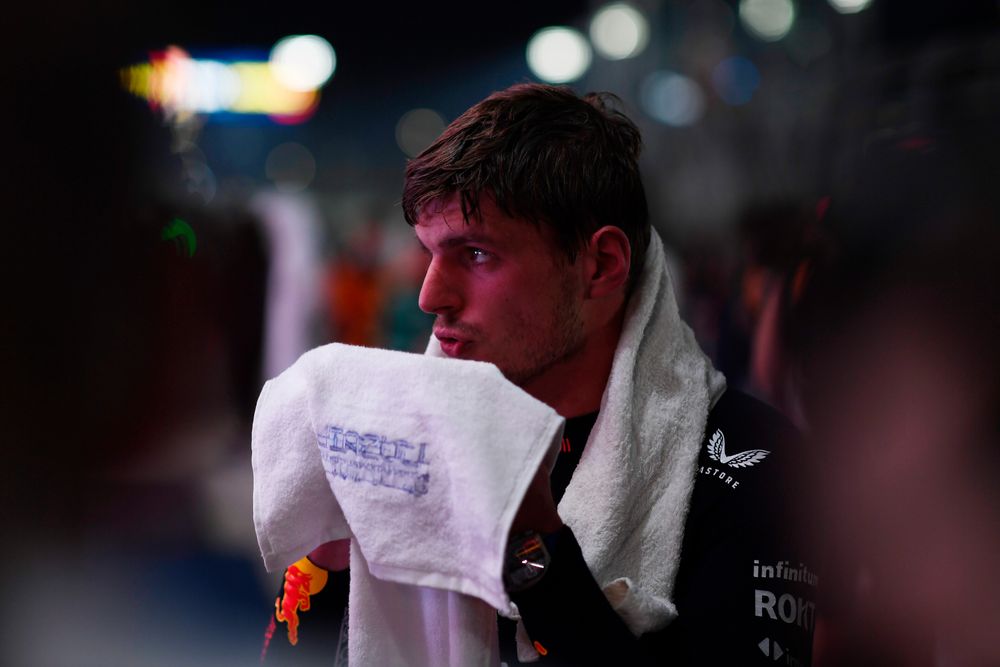Up Next

Max Verstappen has his issues with modern Formula 1. He dislikes what it prioritises, and what it is asking of its drivers. He has no qualms with walking away if it stops giving him what he wants or needs - in fact, he actively advertises his intention to do exactly that.
The three-time world champion can satisfy a generic love for driving anywhere, and, in his mind, the scales will not be tipped in F1's favour for much longer if things go too far down a certain path.
Verstappen hinted that F1 held a finite pleasure for him when he won his first title, was even more explicit after the second, and returns to the theme once more as he digests a record-breaking third title with The Race in the middle of a rapid-fire run of end-of-season media duties, truly his favourite of all F1 activities.
But this time it’s with a bit of a twist. He would not only leave F1 because of the prospect of sprint weekends, boring street tracks, or F1 leaving him feeling like a “clown”, as he did in a Las Vegas Grand Prix week that featured many a Verstappen broadside at what he feels F1 is becoming.
Of the things he disagrees with in F1’s expansive calendar, and the encroaching razzle-dazzle, how much it all takes out of him is not a deal-breaker right now. But as he has hinted at before, it will be one day.
Fortunately, Verstappen doesn’t fear burnout. Because he will walk before the F1 schedule takes that kind of toll on him.
“It's very simple,” Verstappen says.
“I will always approach it in the same way until the day I tell myself that I cannot do that anymore. And then I stop.
“Because I know that if I do it at a lower intensity, I'm not at 100% of what I can do.
“And if I'm not giving it 100%, then I'm fed up with myself, and I prefer not to drive [than feel like that].”
VERSTAPPEN'S TRUE MOTIVATIONS
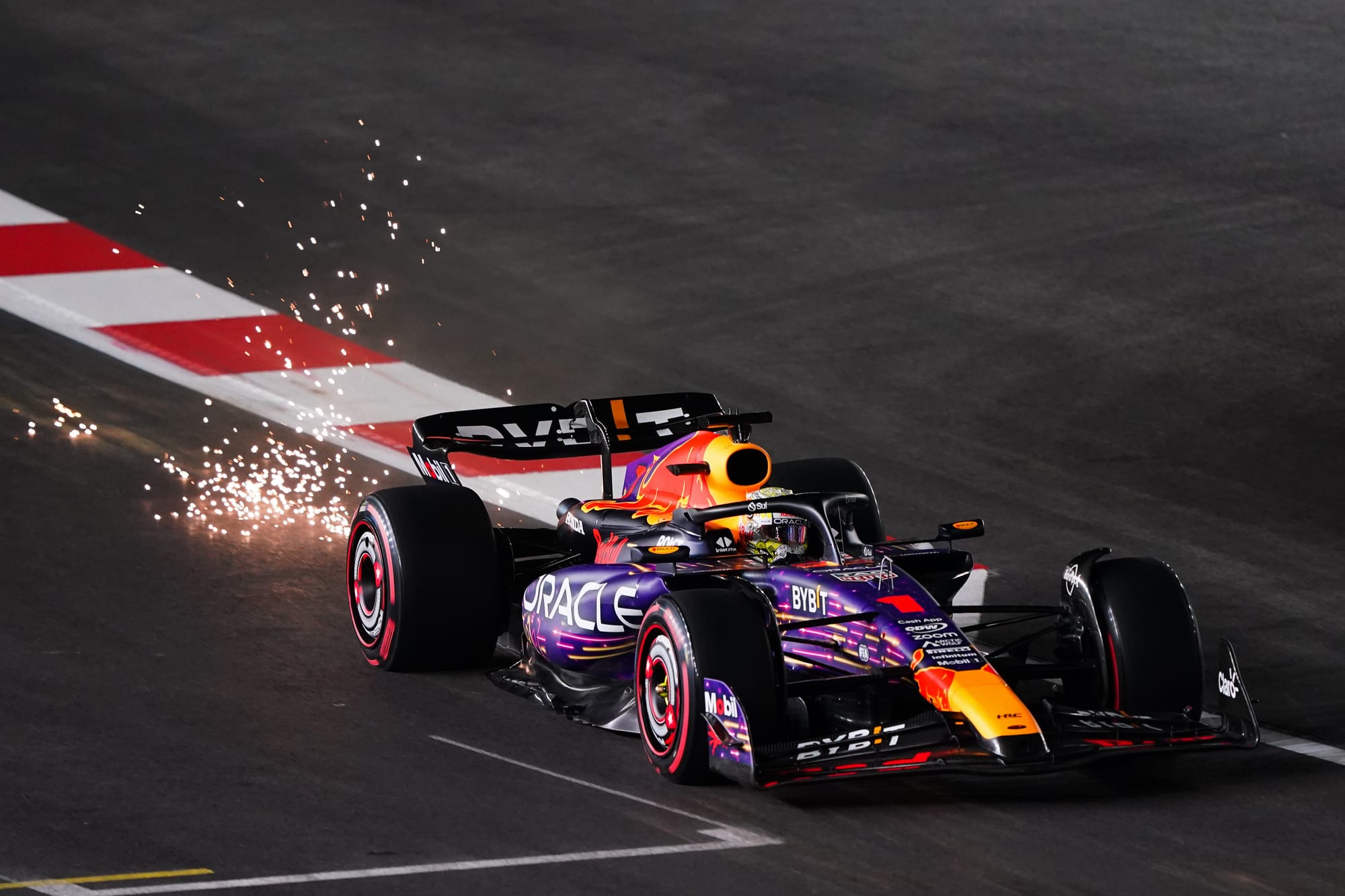
Verstappen is on the path of the relentless - the type of driver who will retire with many people still feeling like he has something to offer, rather than the type to overstay his welcome.
He is almost certainly not going to be running around in the midfield to extend his career. Even if he could probably bank a mighty salary on his terms for a long, long time.
Verstappen's already armed with a lucrative Red Bull deal but there's no need to sully things by talking about finances. He's got simple, sincere motivations for racing - F1 and Red Bull are just letting him satisfy them at the highest level.
“I love the competition,” he says. “I love to beat everyone else. And I like to win races.
“I like that you are constantly testing yourself. You’re constantly learning.
“It's not boring. Never.”
Is that the same as the other driving he does - simracing, for example, or trackdays in GT cars?
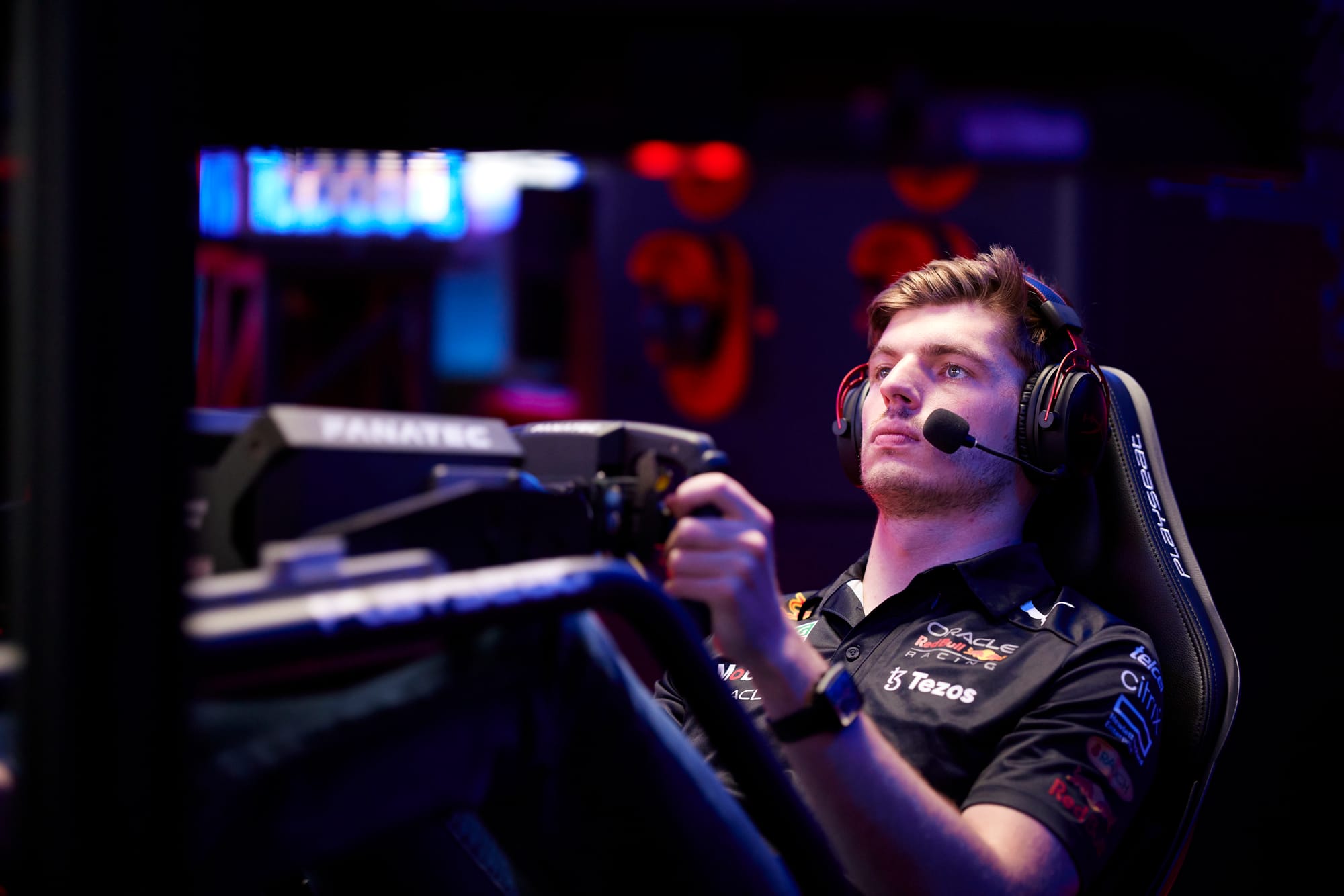
“Yeah, it's exactly the same, but in a different way,” he says.
“Different cars, they have different needs to an F1 car. And that's what I like.”
Verstappen stresses the need to “switch off” between races and he seems to have blended his F1 commitments well with his personal life.
But switching off really just means tuning out of F1 for a bit. Cars, real or virtual, are never going to be far away. Because getting behind the wheel is what Max Verstappen does.
“I'm driving different kinds of cars, and I'm helping the younger generation in the team, with advice, and I like how they are communicating with each other,” he says.
“And I'm just there, sometimes in the background. [Maybe] a bit more relaxed. But we still want to win - the motivation is always there.”
That competitive intensity is the common thread between Verstappen's extracurricular activities and his day job. It’s telling that what Verstappen does for fun is, for the most part, what underpins seasons like his record-breaking 2023 campaign.
“F1 is still fun,” he contends. “But it’s very professional, it’s the highest.
“When I go and drive a GT3 car, it's not as sophisticated. But that's also nice, because it all goes a bit more back to the old-school and it's just a bit different to drive.
“Of course, you don't have like 20 people working on your car, there are not endless possibilities with what you can do on the car, like, 'I want to change this' but sometimes that's not possible.
“It’s a bit simpler. And sometimes it's nice to just go back a step.”
BREAKTHROUGH IN THE DAY JOB
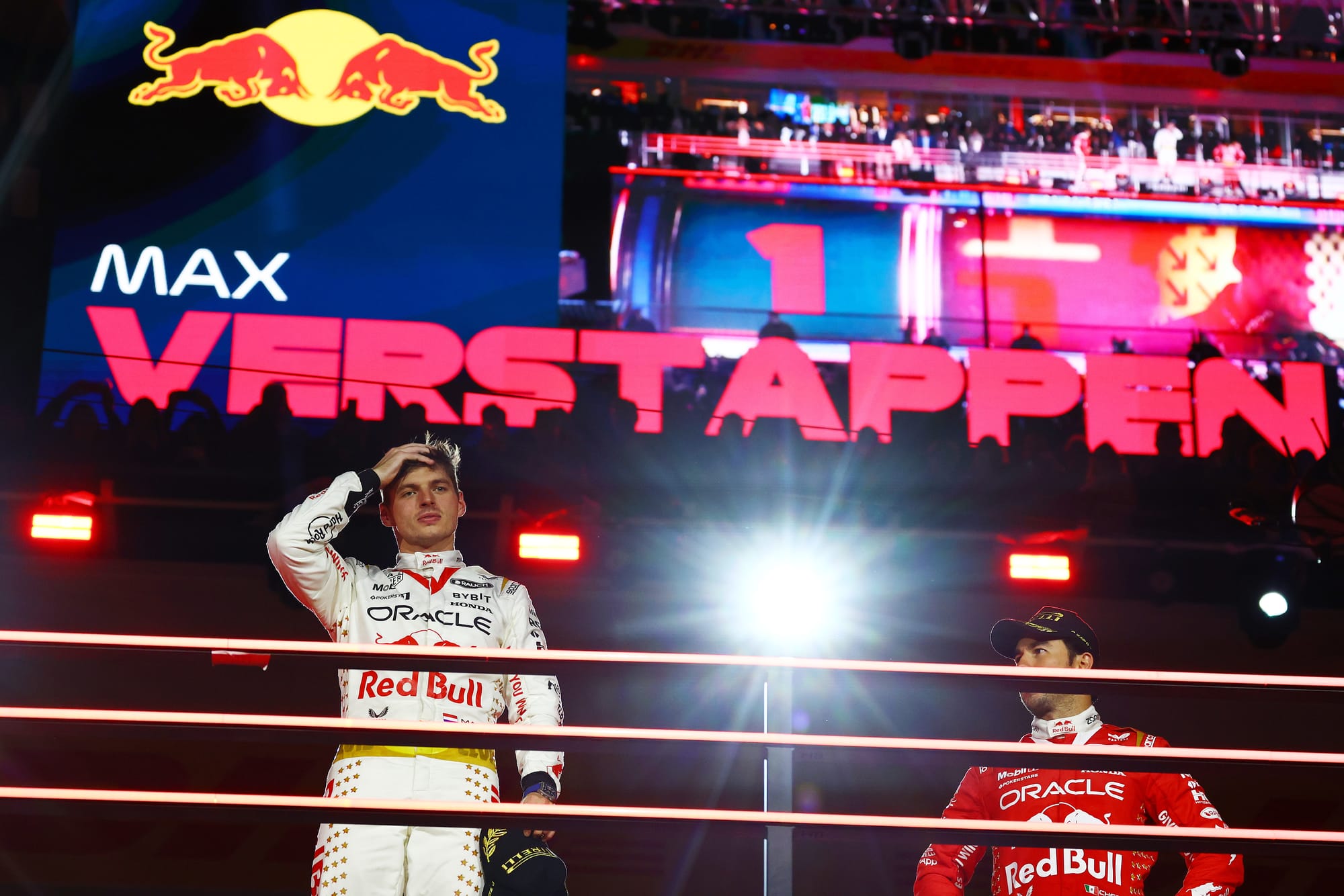
You can see how Verstappen’s two racing worlds complement one another. F1 is many things but could never be described as ‘simple’. And right now, that fits Verstappen perfectly.
He is uncompromisingly competitive and F1 is a perfect fit for a driver of his intensity. You don’t hear many drivers say that they enjoy a grand prix more than qualifying, for example.
“Qualifying is fun sometimes, but I really like the Sunday,” he says.
“Everyone can do a quick lap, but it's more about just race and try to really execute it in the best way possible.”
That is something Verstappen is almost freakishly good at. While his speed is an obvious strength, this season has demonstrated incredible levels of concentration and consistency.
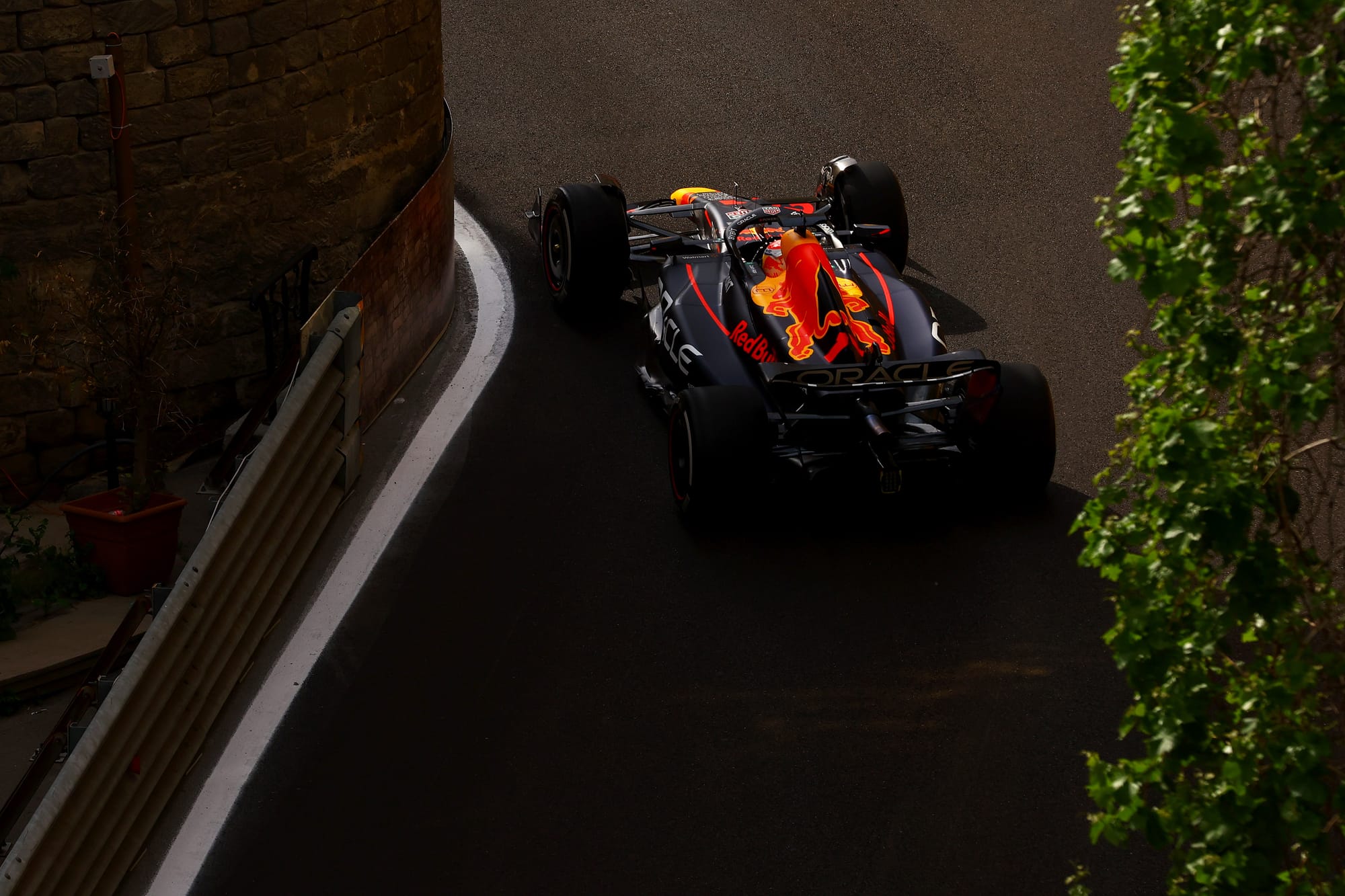
It has not been as easy as it looked at times. The RB19, Verstappen notes, was a slightly more predictable car to set-up than RB18. But early on it was difficult for him to click with: “Initially on the braking, I was always quite afraid it would lock up.
“It was about finding the balance there, and not hurting the rear tyres in the long run. Just getting that combination together. And then every track is also a little bit different in terms of how you want the car.
“It was just getting all these little details together, but in a different way. Because you can set up the car in a lot of different ways to achieve a certain balance.”
The breakthrough came in Verstappen’s Azerbaijan GP defeat to team-mate Sergio Perez. Once he had unfortunately lost track position due to an ill-timed caution, Verstappen looked nailed on to re-pass Perez - but for the second time in four races (after Saudi Arabia), he actually had no answer when it counted.
He used the final stint in Baku to finesse some tools in the car and in his technique - relating to differential settings, steering inputs and brake use - that got some small but important details “a bit more under control, and just changed the behaviour of everything around it”.
What happened in Baku, and in Jeddah, didn’t happen again. Verstappen was not beaten by Perez once more all season. He won 17 of the remaining 18 races, including 10 in a row, despite a spate of rain-affected weekends with qualifying sessions and races made more awkward time and again.
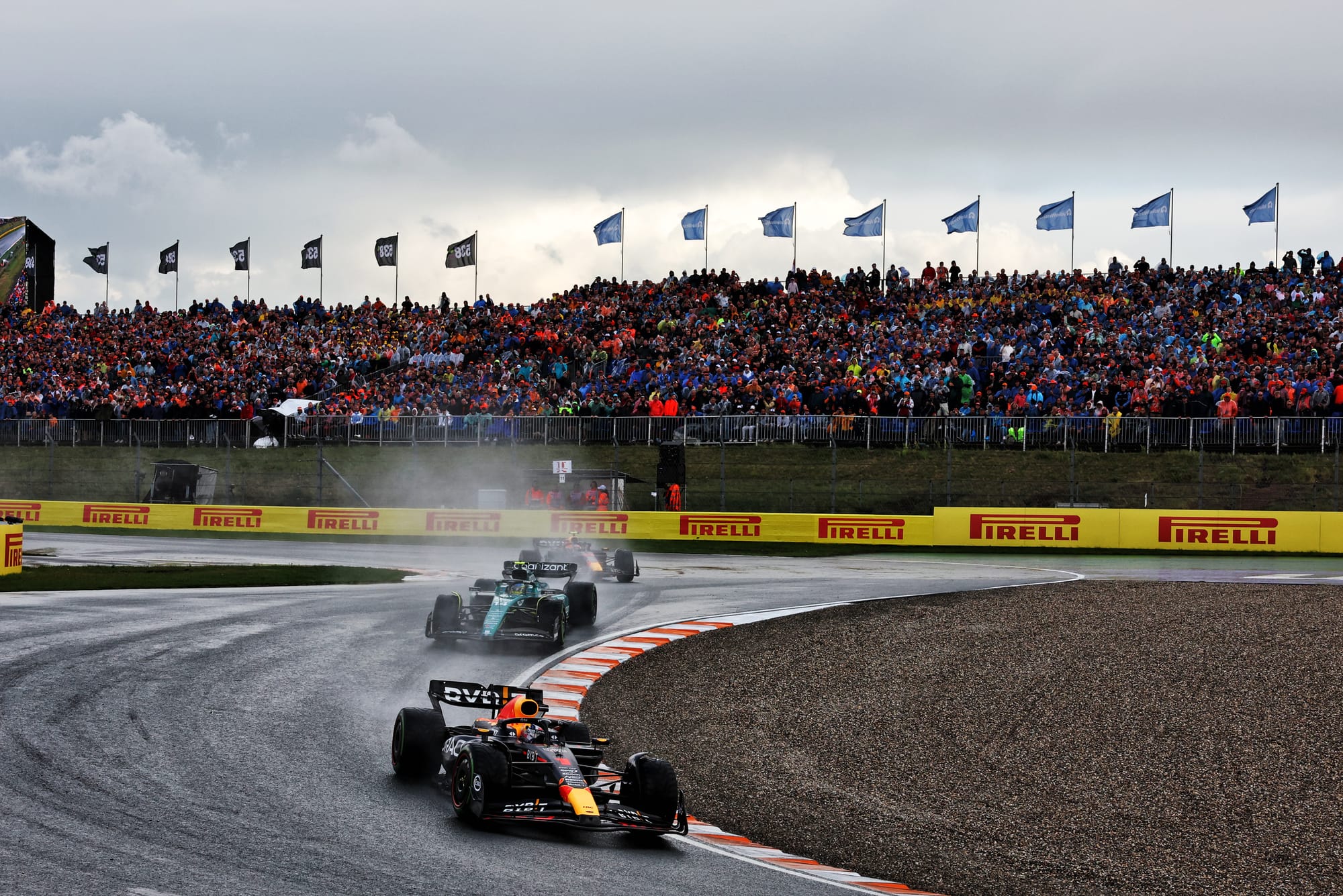
“In the middle of the season, when we were on that winning streak, maybe it looked a bit easy,” Verstappen says.
“But there were a lot of times that it was very difficult situations in qualifying or the race with rain and making the right calls is very crucial as a team as well. And we never really seemed to trip up.
“That also has been very, very difficult to manage. It would have been easy to throw away a race by making a wrong call. But I think we didn't do that.”
WHERE NEXT - AND WHEN?
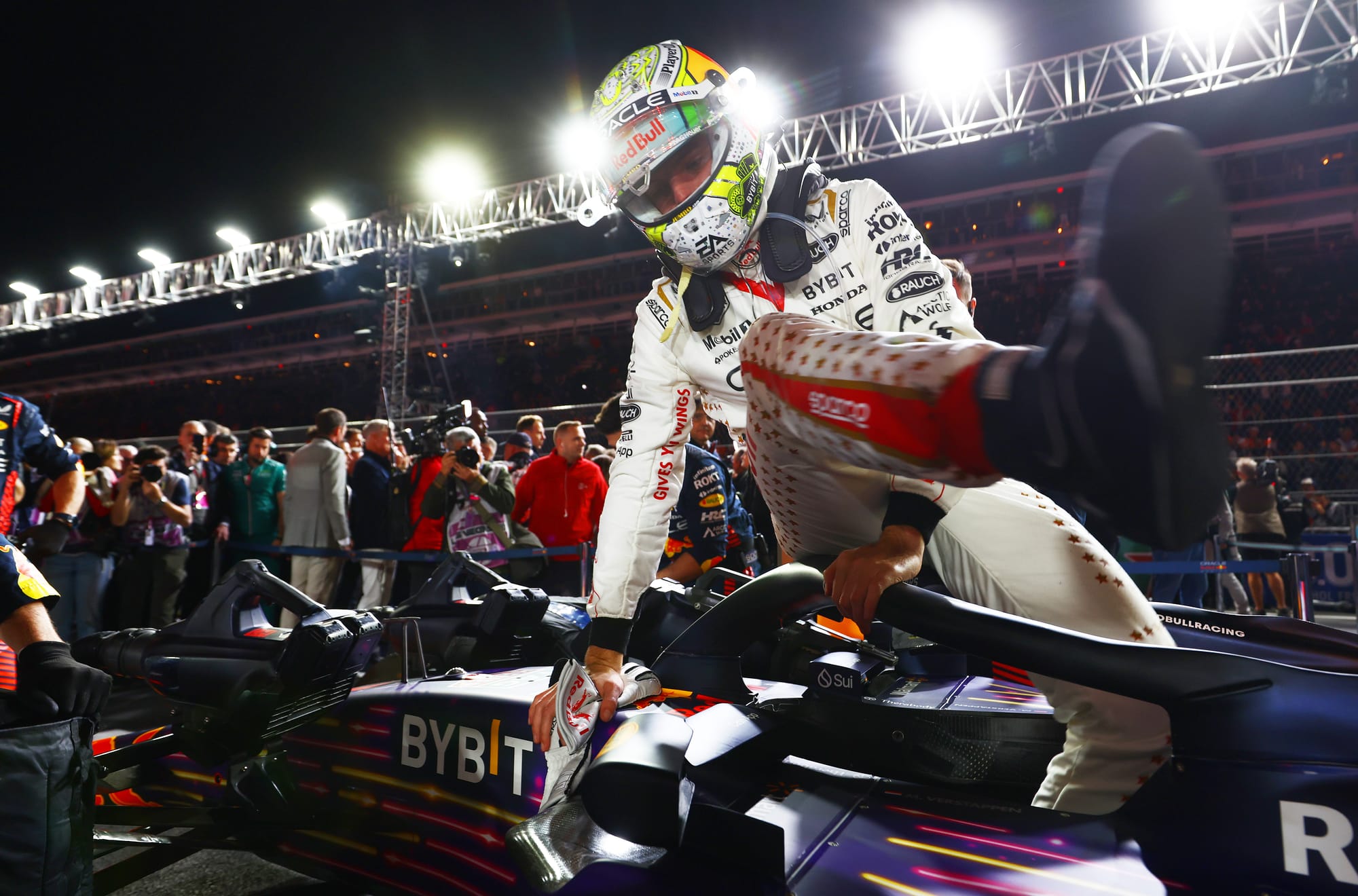
More pressure will inevitably lead to more mistakes, but 2023 had a few curveballs and it was very, very rare that Verstappen was caught out. It was unquestionably his best season in F1.
“Every year you want to try and improve a little bit,” he says.
“It's not massive steps. It's impossible in F1. But I do think that it was, again, a little bit better, more consistent, less mistakes.
“That's what I always try to aim for. The rest is the car. You are dependent on how competitive it is.”
There’s no doubting how good Verstappen’s RB19 was. An improvement on the predecessors that had already let him tick off the most important item on his to-do list in 2021 and 2022, it has facilitated incredible things for Verstappen to accomplish. He now has 54 wins, putting him third on the all-time list. At 26, he is already one of the best and most successful drivers in history. A three-time world champion, he must be the favourite for a fourth in 2024.
None of that would be possible were Verstappen not uncompromisingly competitive. The better you understand the intensity that drives his success, the better you understand how important it is for Verstappen that this intensity is sustained.
It is very clearly augmented by a deep joy for driving, too. And there will come a point when F1 does not satisfy Verstappen in that way. That is when he will weigh up the other things he wants to direct his energy to, while he can still be competitive and, in his words, give it 100%.
This is ultimately why Verstappen has such a simplistic view about calling time on his F1 career, regardless of what the exact trigger might be. The question is not if Verstappen will stop racing in F1 and drive somewhere else, but when and where?
One idea: his eponymous simracing team is moving into the real world, initially the GT arena. Sportscar racing massively appeals to Verstappen, who has repeatedly talked up the World Endurance Championship's Hypercar boom and made his desire to compete in the Le Mans 24 Hours one day clear.
By the time he wants to call it quits in F1, The Race suggests, maybe his own team will be at Le Mans, waiting for him.
“Who knows? It would be nice,” Verstappen says.
“I have a lot more going on, or planned, outside of Formula 1. I'm also looking forward to the future.”


